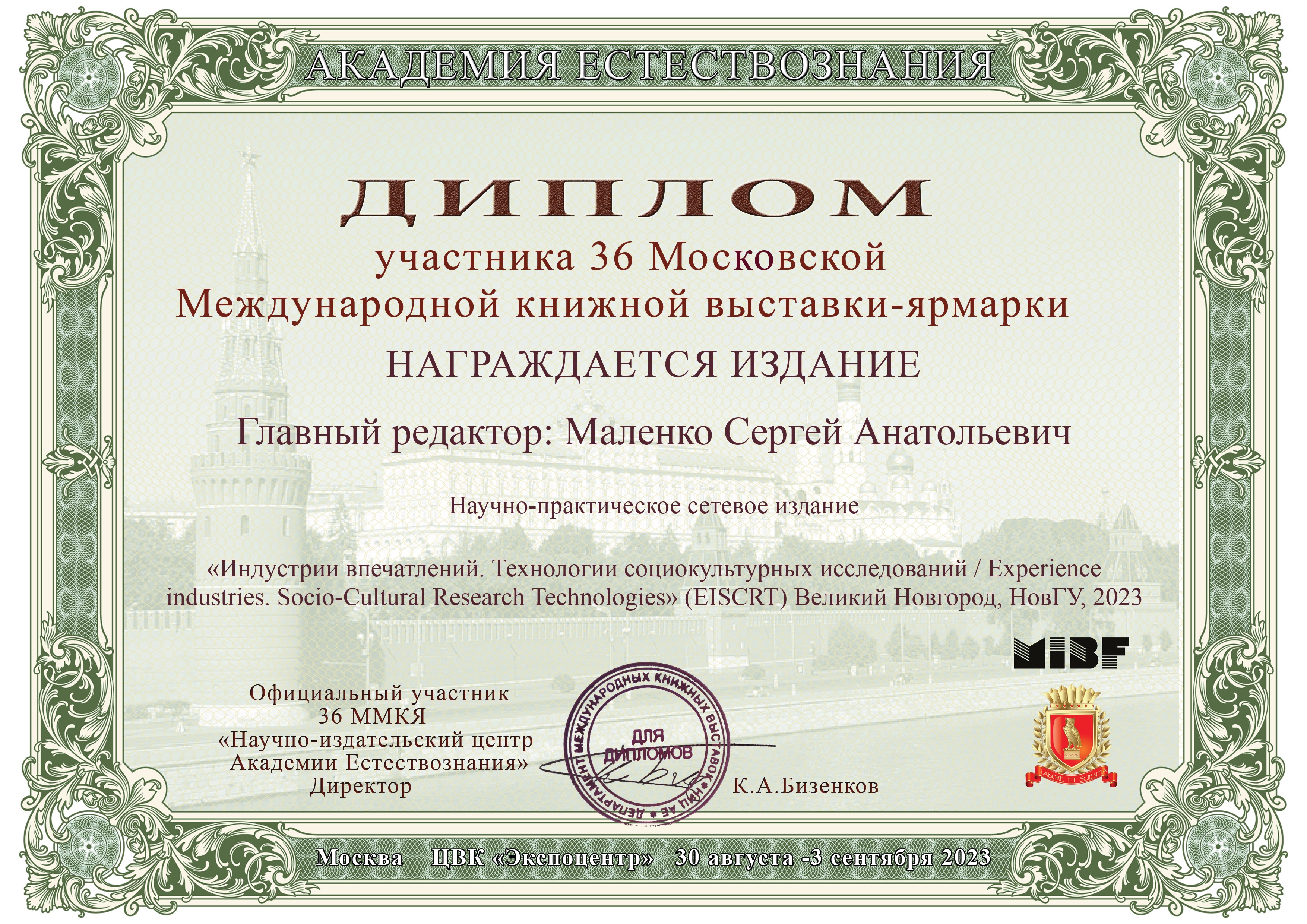SERVING THE NOSTALGIA INDUSTRIES: THE MYTHOLOGY OF THE SOVIET CHEBURASHKA IN THE LABYRINTHS OF CONSUMER DESPAIR
DOI:
https://doi.org/10.34680/EISCRT-2024-2(7)-86-126Keywords:
archetypal family, mythology of Cheburashka, childhood, film , socialization, nostalgia for the Soviet, USSR, compensation, loneliness, alienation, individuation, SMOAbstract
The article analyzes the phenomenon of Dmitry Dyachenko's film Cheburashka, which premiered on December 23, 2022 at the Karo 11 October cinema. The authors try to explain the unprecedented commercial success of the project not so much by the originality of its team’s marketing strategies, but by the presence of certain mythologized images that represent the continuously growing nostalgia for the USSR in modern Russian society. Based on sociological data, the authors conclude that the actualization of the image of Cheburashka during this period is fully consistent with the extreme drama of the difficult stage in which Russia is located, which largely explains the revival of mass fascination with the Soviet past and the creative symbols associated with it. Therefore, the explosive interest of representatives of all generations in this picture is inextricably linked with the desire of Russians for time-tested visual images of a happy, calm, and peaceful life. On the other hand, in the desire to overcome alienation and loneliness, which are the main internal challenges for Russian society, through the experience of the Soviet experience of individuation, on which entire generations were formed, the authors see the operation of a powerful compensation mechanism. Therefore, the study of the image of Cheburashka acquires significant socio-cultural and political-ideological meanings that can consolidate Russian society at the decisive stage of its civilizational development.
For citation:
Nekita, A. G., & Malenko, S. A. (2024). Serving the nostalgia industries: the mythology of the Soviet Cheburashka in the labyrinths of consumer despair. Experience industries. Socio-Cultural Research Technologies (EISCRT), 2 (7), 86-126. (In Russian). https://doi.org/10.34680/EISCRT-2024-2(7)-86-126








